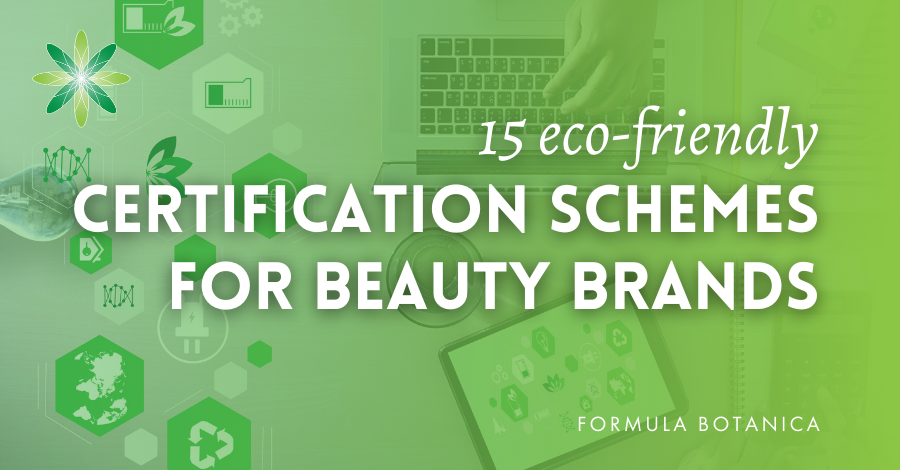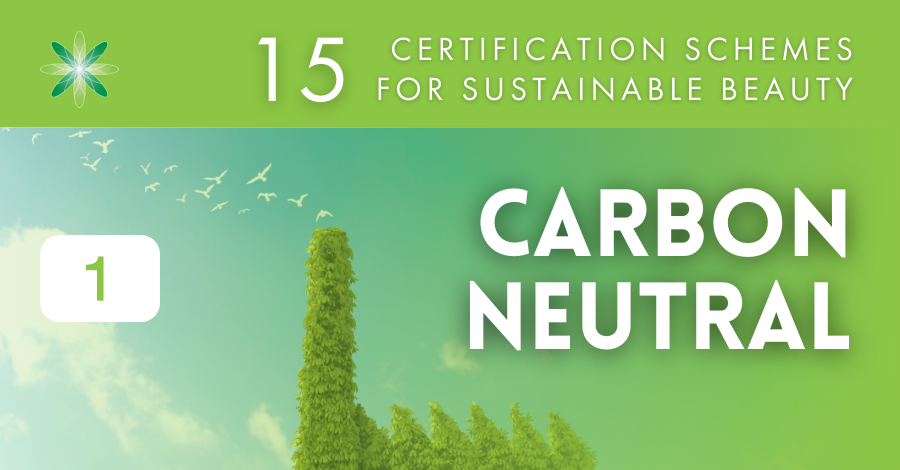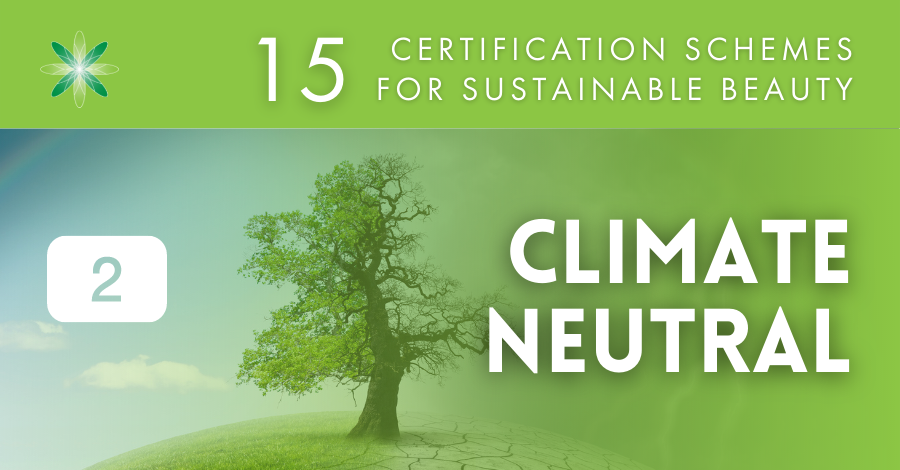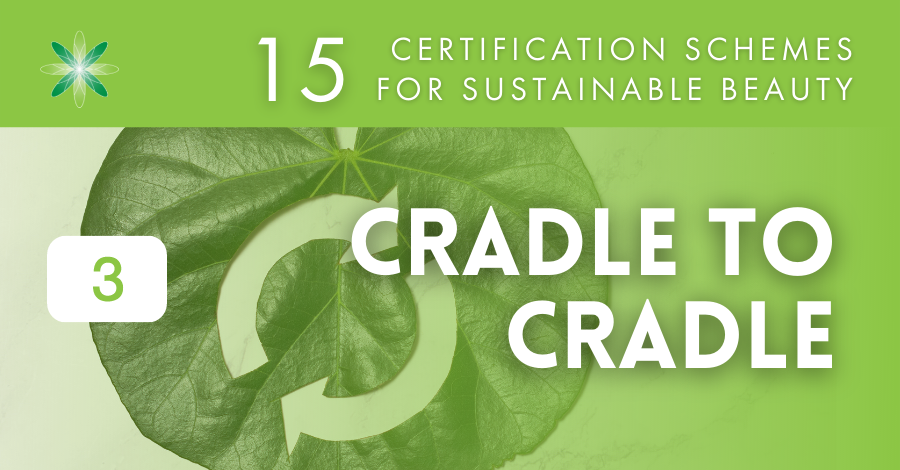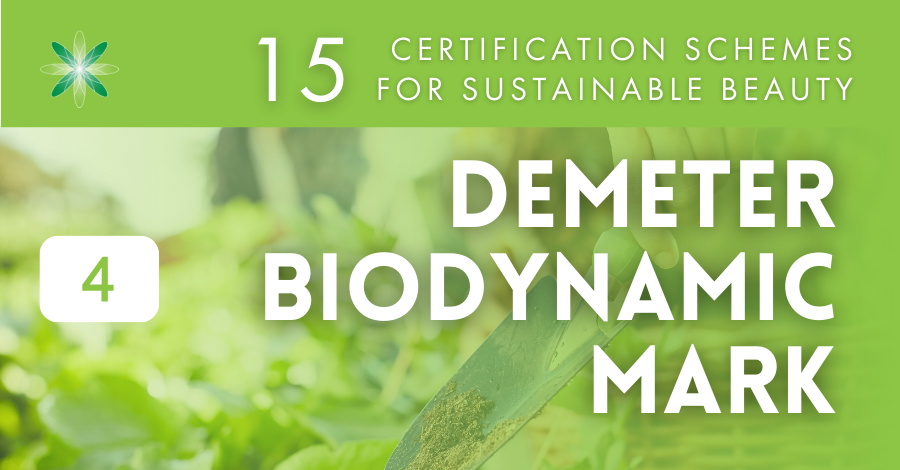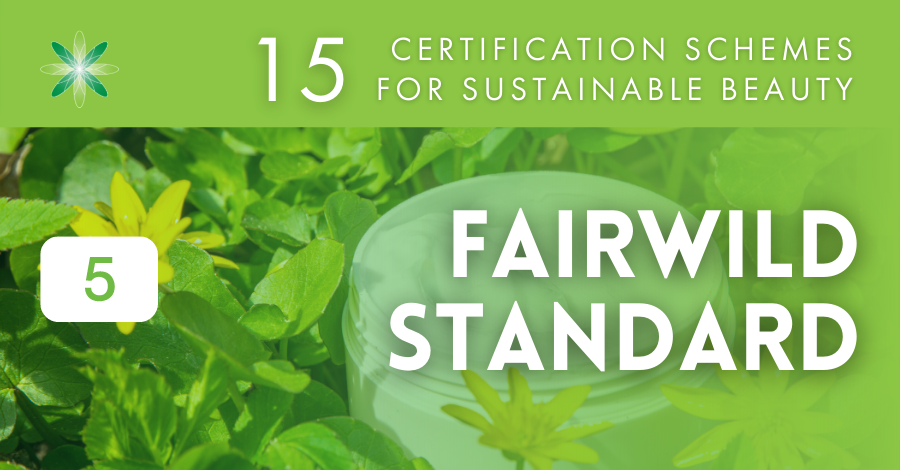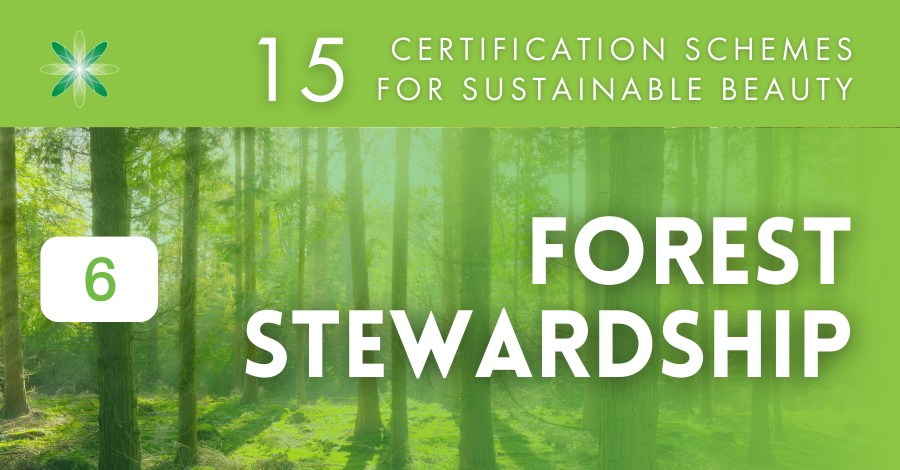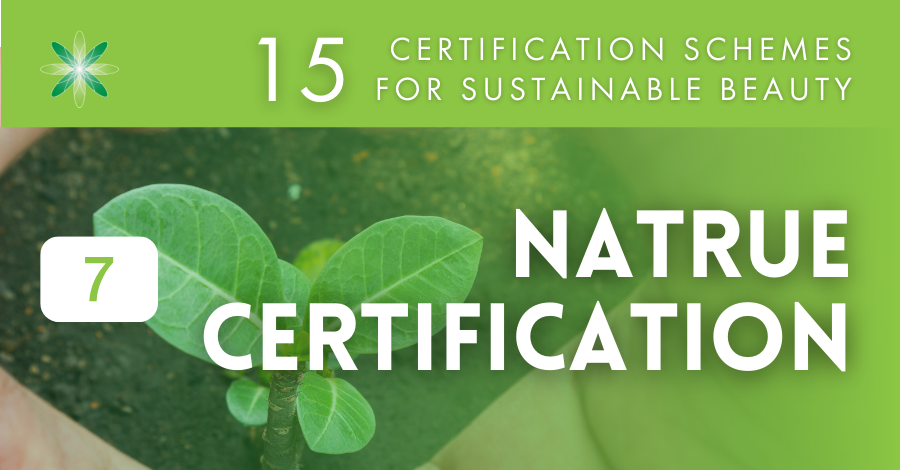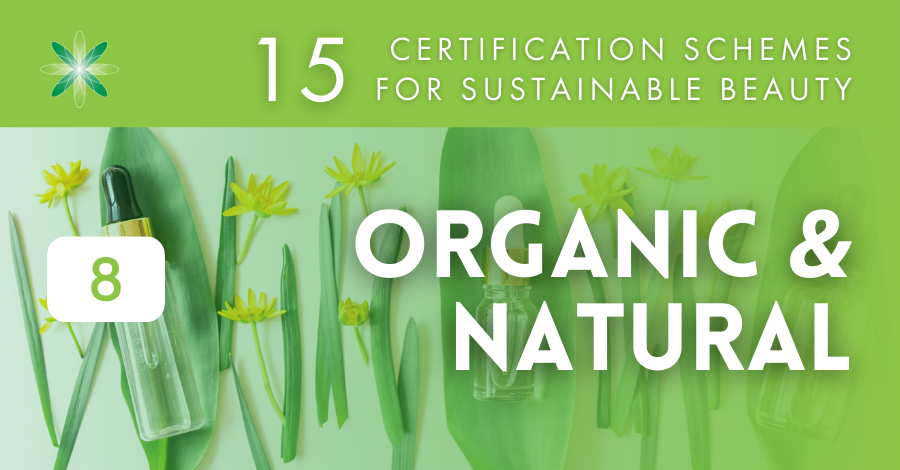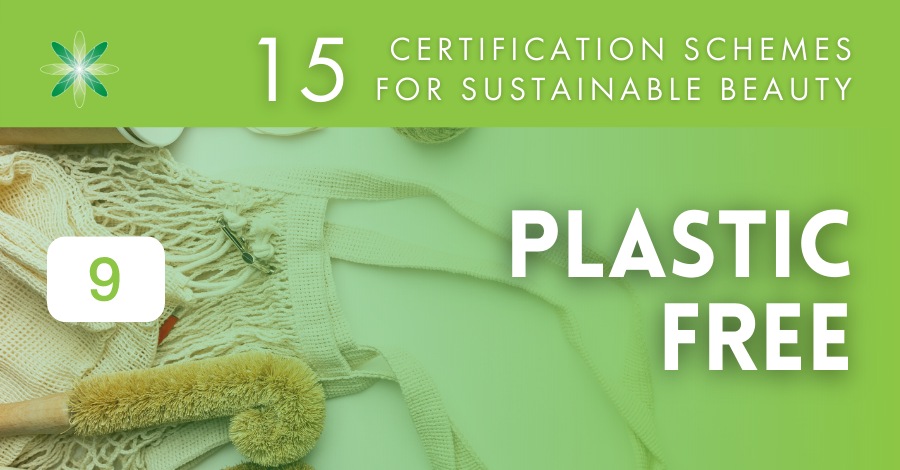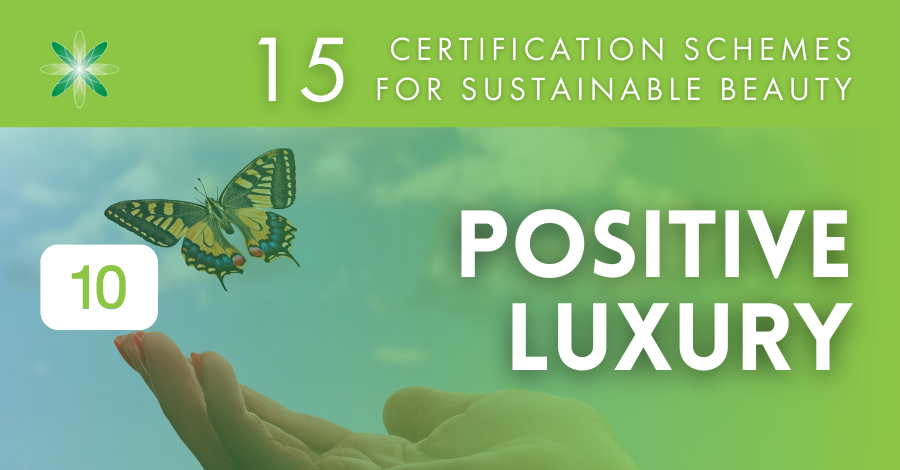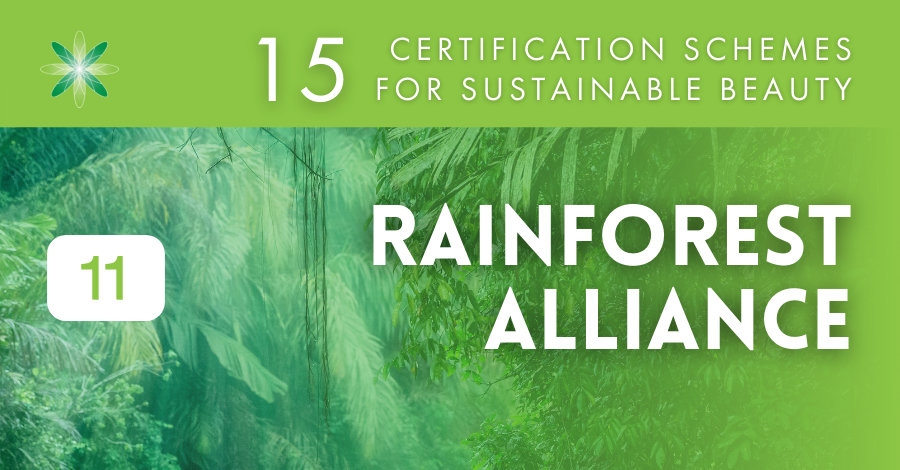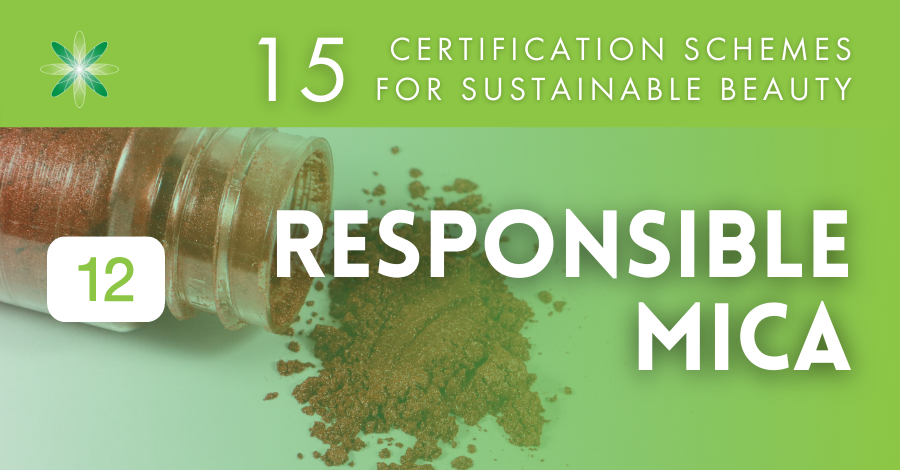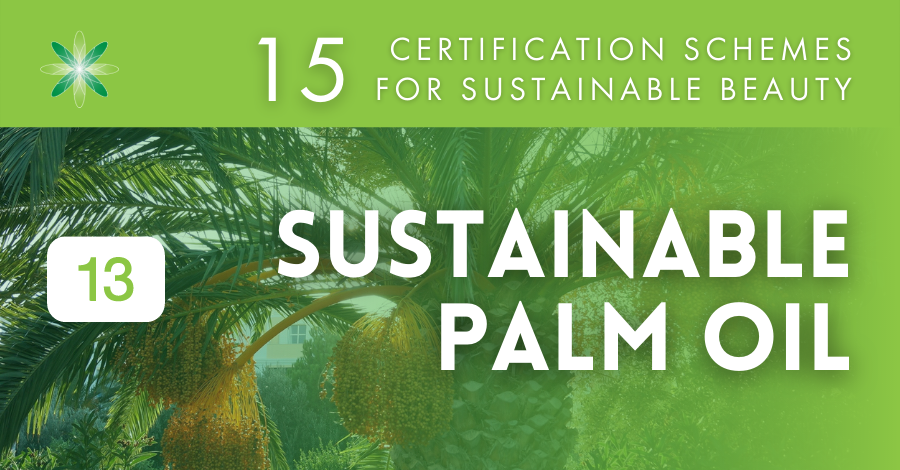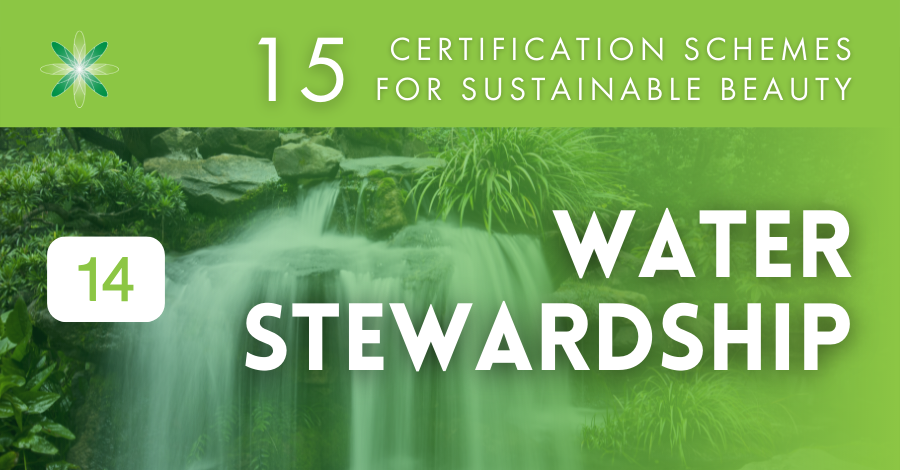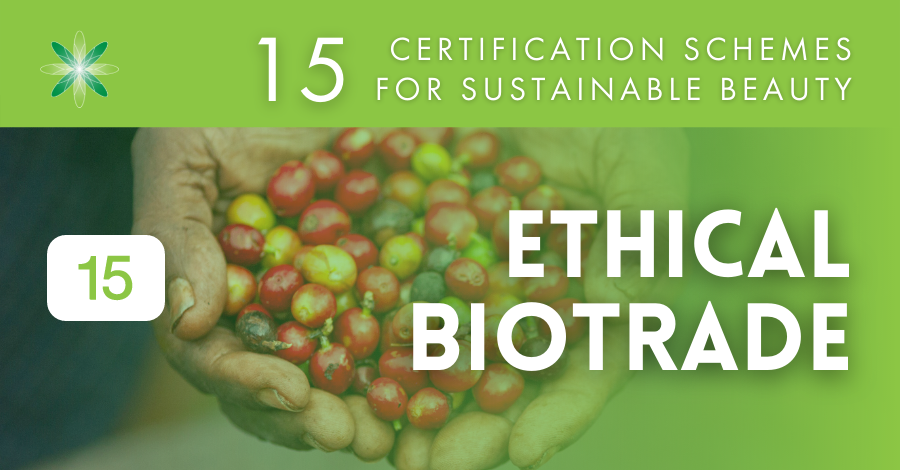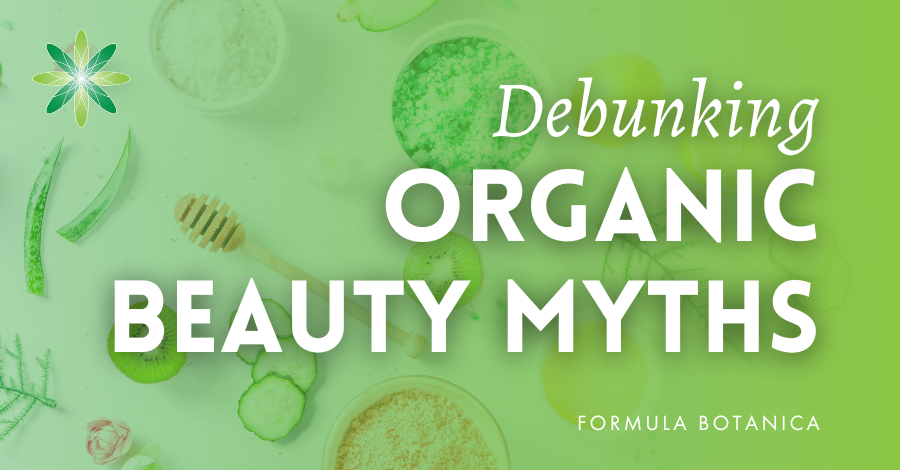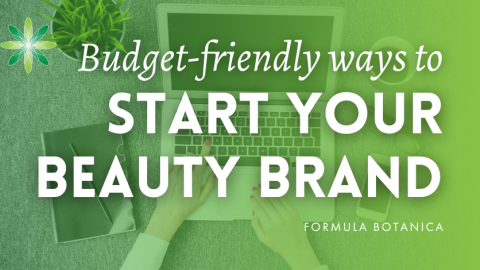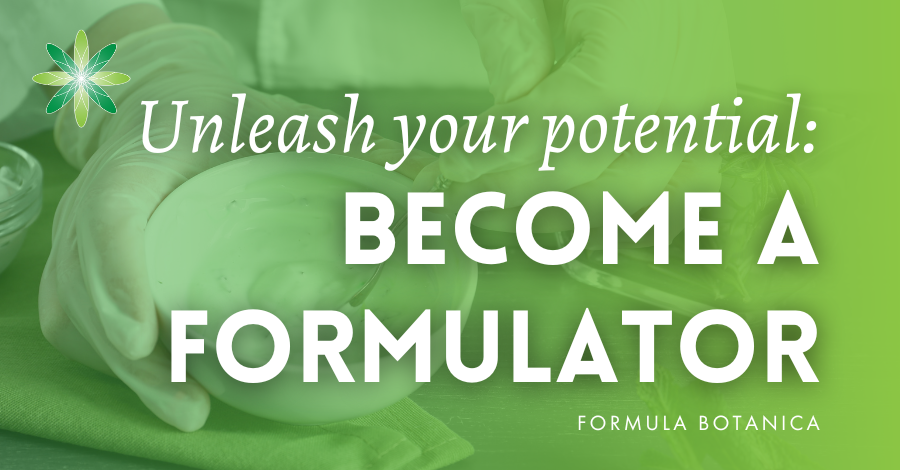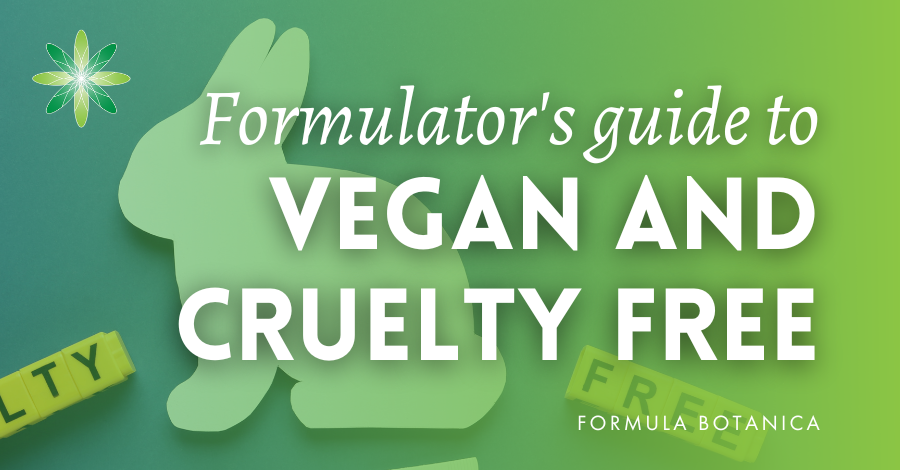Sustainable beauty is a buzz phrase in the beauty industry today. Almost every indie, natural beauty brand we know wishes to play a role in reducing its footprint on the planet, all the way from the impact of its supply chain to the harm its cosmetics’ packaging and waste may do in their post-consumer afterlife.
Keeping goods and waste in the closed loop of a circular economy is the ultimate goal, but not always viable. So, brands look to various schemes to guide them on their sustainability journeys. In our Green Beauty Conversations podcast, Formula Botanica CEO and show host Lorraine Dallmeier has interviewed representatives of numerous beauty certification schemes as well as brand founders actively engaged in striving for and driving more sustainable business models.
The sheer number of beauty certification schemes, each with their accreditation marks for a brand to proudly showcase on its beauty packaging and website, is overwhelming. Where does an indie beauty brand start in deciding which schemes are best for it and will make sense to its customers, retailers, suppliers and manufacturers?
Set your sustainability goals
In our podcast with BYBI Beauty, we heard Formula Botanica graduate founders Dominika Minorova and Elsie Rutterford advise beauty brands to focus on a single, achievable goal. Speaking from experience, they said this was a better than spreading your energies thinly in an attempt to gain numerous certifications and kudos with customers on too many fronts.
These beauty brand founders know just how difficult it is to achieve verifiable goals as they set themselves not only the challenge of being a carbon-negative company in a very short time, but also a net-zero one too. For more about BYBI’s sustainability goals, listen to podcast 87: Selling skincare while sinking carbon – it this possible?.
15 Sustainability Beauty Certification Schemes
In this post, we cover some of the main beauty certification schemes and initiatives that deal with sustainability issues and goals. Our list is not exhaustive and note that we intend to cover other areas of certification such as vegan, social enterprise and fair trade in the future.
Some entities we mention below are not accreditation schemes as such, but are important to know about if you wish to build a more sustainable beauty brand. The Responsible Mica Initiative, for example, offers guidelines to strive to adopt rather than certification or accreditation.
It is important to note that gaining certification can take time and be costly. It is not for every brand and we advise you to think carefully about your vision and mission and to consider which, if any, scheme is right for you. There are many ways to add value to your brand and take small steps, at the junctures you can, towards, for example, organic certification.
Listen to Lorraine’s podcast episode Transparency in Beauty in which she interviews Jessi Baker, CEO and founder of Provenance, a blockchain platform that underpins supply chain claims. Provenance helps beauty brands – and other sectors – turn positive social and environmental impact into brand value. It is one example of a way in which beauty brands can take small, achievable steps toward their goals without feeling overwhelmed.
Carbon Neutral Certification
The Certified Carbon Neutral Global Standard has been running for over 20 years and says that it “delivers climate action now and prepares your business for a low carbon transformation”. The certification, created and run by Natural Capital Partners, a climate impact company, provides assurance that an entity has measured and reduced its emissions to zero using offsetting and reduction methods. It operates a five-step plan to attain certification: define; measure; target; reduce; and communicate.
In achieving its certification, it is likely a beauty brand will need external, specialist consultancy help to target and measure its carbon footprint and to devise ways to reduce, offset and manage its carbon emissions to reach ‘net zero’. Our podcasts on carbon neutrality provide insights and case studies as does the Carbon Neutral website.
Carbon Neutral
Podcast 50: Can a beauty brand ever be carbon neutral?
Podcast 87: Selling skincare while sinking carbon – is this possible?
Climate Neutral Certification
Climate Neutral is a not-for-profit organisation launched in 2019 with the aim of eliminating greenhouse gases. Its mission is to enable every consumer to find climate-neutral brands easily, and to help every brand mobilise the tools to become one. It believes in a partnership of consumers and brands working together towards a net-zero future now, and not one achieved solely through goals envisioned for 2050. The entity uses three ways to see this change happen: its Climate Neutral Certified label, which is an independent and trusted climate-neutrality standard for companies; its emissions’ measurement tools that help democratise carbon accounting; and also through its guidance, resources, and connected community of companies.
Interestingly, Climate Neutral handholds brands through its certification process, and starts by giving near estimates of a company’s carbon footprint as well as accepting some carbon offsetting to be factored in. This allows companies to start the process today, rather than aim for the long-term prize of a zero footprint and still pump out emissions in the meantime. Our podcast interviewed Climate Neutral CEO Austin Whitman about how indie beauty can start on the road to certification.
Climate Neutral
Podcast 71: How to make the beauty industry climate neutral
Cradle to Cradle Certified®
Cradle to Cradle Certification embodies the principle of the circular economy in which materials in circulation for the manufacture of goods are kept in an infinite loop and recycled and reused rather than disposed of at the end of their life. The Cradle to Cradle Institute believes that how we design and make products today shapes the world we will inhabit tomorrow.
The institute has been helping companies for over a decade innovate in design and optimise materials used in manufactured goods. Its certification is the global standard for products that are safe, circular and responsibly made.
The certification assesses the safety, circularity and responsibility of materials and products across five categories of sustainability performance: material health; material reuse; renewable energy and carbon management; water stewardship; and social fairness. As you can see, it is far reaching as almost every aspect of sustainability is within its orbit. Our podcast explains the circular economy in simple terms and talks about how indie beauty can start to design cradle-to-cradle principles into their businesses and products.
Cradle to Cradle Institute and Global Standard
Podcast 66: What is circular beauty?
Demeter Biodynamic Mark
Demeter Biodynamic Certification started in 1928 and is the largest, worldwide biodynamic regulatory body. It certifies a large range of ‘gold standards’ in biodynamic farming and production ranging from biodiversity and ecosystem preservation to soil husbandry and the prohibition of genetically-engineered organisms. It guarantees consumers the ultimate in high-quality products, whether personal care or food. In brief, it goes further than organic farming practices to encompass the concept of holistic farming methods in which planting cycles are based on a biodynamic calendar in line with the plants innate rhythms of life. Based on Rudolf Steiner’s work dating to 1928, the Demeter principles include regeneration, integration of nature and human beings, and ecological and social responsibility. Well-known personal care brand Weleda uses ingredients grown to biodynamic farming and production principles.
Biodynamic Federation Demeter
Demeter Certification
Podcast 30: The philosophy of biodynamic skincare
FairWild® Standard
Wild harvesting of beauty product ingredients seems like the dream of many natural formulators. However, wild harvesting when natural habitats and biodiversity are under threat can be viewed as unethical. Increasingly subject to national, regional and local regulations, wild harvesting now has its own global standard managed by the FairWild Foundation. Their aim is to verify as ethical the practices of wild plant collectors who want to demonstrate their commitment to socially- and environmentally-wild collections. Wild harvesting can be done by indigenous peoples using traditional and low-impact methods or it might be something an individual indie beauty founder practices.
The FairWild Standard is a worldwide framework for implementing a sustainable, fair and value-added management and trading system for wild-collected natural ingredients and the products created from them. It covers not only the legal, ethical and sustainable harvesting of plants but also their fair trading to ensure the benefits of the trade filter down to the local communities harvesting the wild plants. In auditing and assessing a business for FairWild Certification, the organisation looks at the entire supply chain from wild collection operations to the traders, processors and finished product manufacturers. Entities in any stage of the chain can apply for certification. Lorraine’s podcast with FairWild’s Emily King explains the aims and practicalities of certification.
FairWild Foundation
The FairWild Standard
Podcast 85: The truth about wild-harvested beauty
Forest Stewardship Council FSC Mark
The tree symbol of the Forest Stewardship Council (FSC) is a familiar mark on paper packaging. The FSC is a non-governmental organisation that was established in 1993 to promote responsible management of the world’s forests. FSC certification allows businesses and consumers to identify, purchase and use wood, paper, and other forest products made with materials from well-managed forests and/or recycled sources. The FSC stipulates 10 principles that forest operations must adhere to before they are granted FSC forest management certification. These include high-quality forest conservation as well as the monitoring of environmental and social impacts of the forest management and community relations and workers’ rights. Beauty brands may be permitted to use the FSC mark on their packaging if their paper and card suppliers or printers have transparent supply chains and are allowed to use the logo on packaging they supply or produce. Ask your packaging partner to confirm if you can use the FSC mark.
Natrue
Formed in 2007 by five personal care companies with a deep corporate commitment to natural, organic cosmetics, NATRUE is a Brussels-based, international, non-profit association that works to both promote and regulate natural and organic cosmetics, as well as advocate for their official definition. The NATRUE label is there to help improve transparency in the naturals’ sector among businesses and consumers. NATRUE certification is possible both for raw materials and finished products and the process to certification follows recognised international procedures.
The NATRUE Standard includes, for example, requirements for a product to contain specific percentages of natural and naturally-derived ingredients, to be free of GMO and petrochemical-derived ingredients, to be microplastics free, to contain only RSPO palm oil (see below for that mark) and for 75% of a brand’s product range to be certified. NATRUE is one of the common marks Formula Botanica graduate brands attain.
NATRUE (International Natural and Organic Cosmetics Association)
Organic and natural certification: COSMOS
COSMOS, the leading international certification of natural and organic cosmetics, is a not-for-profit body founded by five national standards’ organisation members: BDIH – Germany; Cosmebio – France; Ecocert – France; ICEA – Italy; and the Soil Association – UK.
They bring their combined expertise to the continuous development and management of the COSMOS-Standard which comprises two certification strands – one for organic, the other for natural cosmetics. COSMOS Standards define the criteria companies must meet to guarantee consumers that their products are genuine organic or natural cosmetics produced to the highest feasible sustainability practices. At present, over 29,000 products in 71 countries carry the COSMOS ORGANIC or COSMOS NATURAL signature.
COSMOS is the most well-known organic certifying body, and, although rigorous, its standards are within reach of indie beauty brands committed to the certification process. COSMOS organic certification goes well beyond stipulating the minimum percentage of organic ingredients required in a product. The standard reaches far and wide into a cosmetic brand’s sourcing, manufacture, marketing and control of cosmetic products, environmental management and more.
COSMOS certified and its standard logo are highly regarded and familiar to consumers. If you would like to hear more about COSMOS in action, listen to our podcast with Sarah Brown, founder of organic brand PAI Skincare. In this episode, Sarah explains why PAI has stayed with the COSMOS-Soil Association organic standard in preference to any other certification schemes.
Plastic Free Standard
Plastic Free™️ certification is managed by A Plastic Planet, a campaigning organisation founded in 2017 with the goal of reducing our plastic production and consumption and promoting the development and offer of plastic-free alternatives. A Plastic Planet aims to cut through the confusion of plastics’ terminology and make clear what constitutes undesirable, non-biodegradable plastic; even so-called bio-plastics take hundreds of years to degrade and then may remain as nano- or micro plastics.
The entity operates two Plastic Free Standards: the “A Plastic Planet Plastic Free Standard” defines plastic-free packaging, products and materials, while the “A Plastic Planet Industry Commitment Mark” is for businesses demonstrating their intention to reduce plastic across their operations. The organisation therefore helps businesses start simply and easily on the road to plastic free with the commitment mark as an entry point. For both standards, A Plastic Planet certification follows a road map including audits and demonstrable commitments.
Positive Luxury Certification: Butterfly Mark
Set up in 2011, the Positive Luxury Sustainability Council works to promote and enable luxury brands to operate to the highest standards of sustainable business across their supply chains and business operations. It is dedicated to demonstrating the compatibility of the concept of luxury and sustainability. The Butterfly Mark certification is an independent, globally-respected trust mark awarded to luxury brands, retailers and suppliers that meet the highest standards of the council’s own verifiable criteria. It was created in consultation with the Positive Luxury Sustainability Council and is rigorous, independent and underpinned by the latest international standards, global legislation and best practice principles. The mark is achievable for indie beauty operating at the luxury end of the personal care market. The Positive Luxury Council runs a “Start-Up Accelerator Programme” to identify and support young, innovative companies, helping the luxury industry adapt and reshape itself to ensure a sustainable future. While the mark and membership does come with a cost, Positive Luxury offers micro- and small-business entry levels and we noticed some small cosmetics brands have gained accreditation.
Positive Luxury: Butterfly Mark
The Rainforest Alliance
The Rainforest Alliance, founded in 1967, is an international, non-profit organisation working at the intersection of business, agriculture and forests to make responsible business in rainforest regions “the new normal”. It builds alliances to help protect forests, improve the livelihoods of farmers and forest communities, promote their human rights, and help them mitigate and adapt to the climate crisis. The Rainforest Alliance certification seal indicates that a farm, forest, or tourism enterprise has been audited to meet environmental and social standards. The Alliance’s distinct ‘little green frog’ mark tells consumers that the product has been produced from rainforest ingredients and materials that have been sustainably grown or harvested and are planet and worker friendly. The product or ingredient must have been grown on farms certified to the Rainforest Alliance Sustainable Agriculture Standard and/or the UTZ Code of Conduct. The Rainforest Alliance merged in 2017 with UTZ, a program and label for sustainable farming.
Responsible Mica Initiative
The beauty industry is a huge consumer of mica minerals, which can comprise 50-90 percent of certain cosmetics such as cosmetic powders, eye pencils and shadows, blushers and lipsticks. The Responsible Mica Initiative (RMI) may be less known in the indie beauty community and among consumers and is not an accreditation scheme or standard, but its aims are among some of the most noble and necessary. Indie beauty brands need to be sensitised to its role and be responsible in sourcing mica for their products.
Mica mining is carried out mainly by small-scale mining communities and in some of the most impoverished parts of the world. Entire villages can depend on mica mining and the industry fosters the conditions for child labour. The Responsible Mica Initiative works to raise awareness of the conditions of miners and their families, not to eradicate mica mining nor orchestrate its boycott which could lead to greater hardship for the mining communities.
While RMI members from the cosmetics industry are mostly large, international companies – for obvious reasons, as they use large amounts of mica – the indie beauty community can play its part in realising the goals of the initiative to eradicate child labour and improve the lives and communities of mica miners. A first important step is to ask any suppliers about their supply chains for mica; do they know, and can they prove where their mica comes from and how it is mined?
Podcast 95: Why we need responsible mica in our cosmetics
Responsible Mica Initiative
Sustainable Palm Oil (RSPO)
RPSO is a not-for-profit organisation bringing together stakeholders from the 7 sectors of the palm oil industry: oil palm producers, processors or traders, consumer goods manufacturers, retailers, banks/investors, and environmental and social non-governmental organisations (NGOs). Established in 2004, RSPO has developed a set of environmental and social criteria with which companies must comply with in order to produce Certified Sustainable Palm Oil (CSPO). The aim is to help minimise the negative impact of palm oil cultivation on the environment and communities in palm oil-producing regions. Products using RSPO-certified palm oil can use the RSPO trademark.
Sustainable Palm Oil (RSPO)
RSPO Standard
Water Stewardship – Water Footprint Standard
The Alliance for Water Stewardship (AWS) is a global membership collaboration of businesses, NGOs and the public sector. It defines water stewardship as the use of water that is socially and culturally equitable, environmentally sustainable and economically beneficial, and achieved through a stakeholder-inclusive process that includes both site- and catchment-based actions. The AWS International Water Stewardship Standard (AWS Standard) is a globally-applicable framework for major water users to understand their water use and impacts. Its criteria look at: good water governance; sustainable water balance; good water quality status; important water-related areas; and safe water sanitation and hygiene for all. The standard can be implemented by any site, in any sector, in any catchment around the world.
Alliance for Water Stewardship
Ethical sourcing – Union for Ethical Biotrade
The Union for Ethical Biotrade (UEBT) is a non-profit association founded in 2007 that provides a globally-recognised standard for sustainable sourcing and the use of raw materials. It works to regenerate nature and secure a better future for people through ethical sourcing of ingredients from biodiversity. The certification looks at a company’s or ingredient’s entire sourcing system to verify that the right policies are in place to ensure biodiversity is conserved, ingredients are sourced sustainably, and that workers in the supply chain are treated equitably and paid fairly. The UEBT ethical sourcing system certification began in 2018 with Weleda and Natura Cosmetics as launching partners.
Leave us a comment

Liz was Formula Botanica’s Content Coordinator between August 2020-2024. Liz worked as a professional blogger, journalist and site developer for many years and was also part of the Formula Botanica student community. Read more about the Formula Botanica Team.

